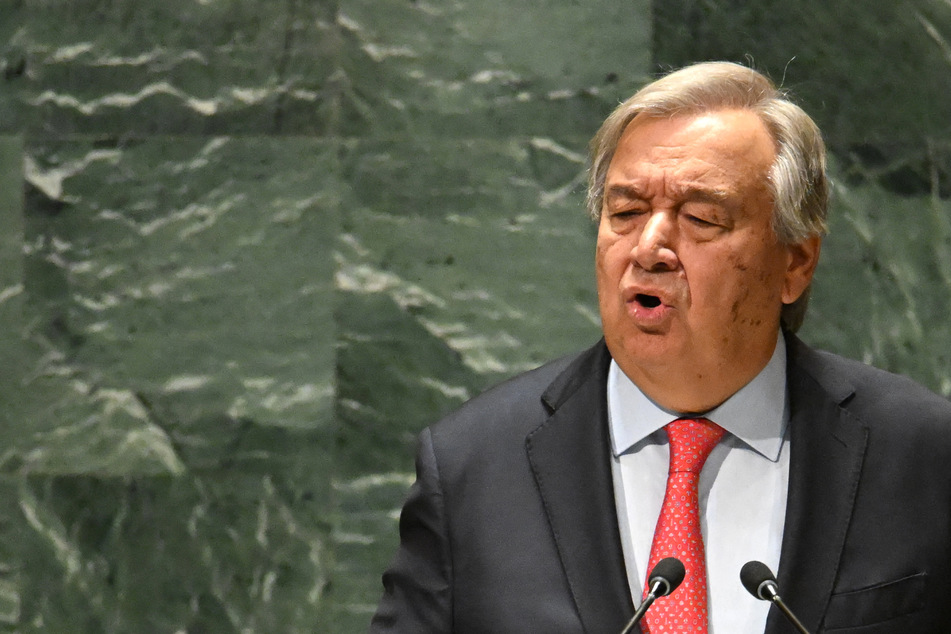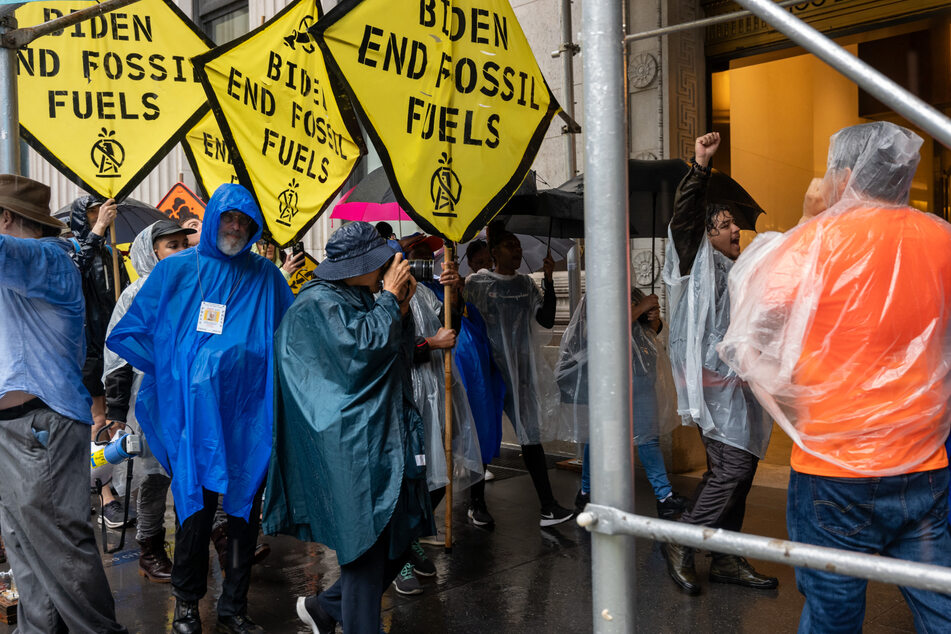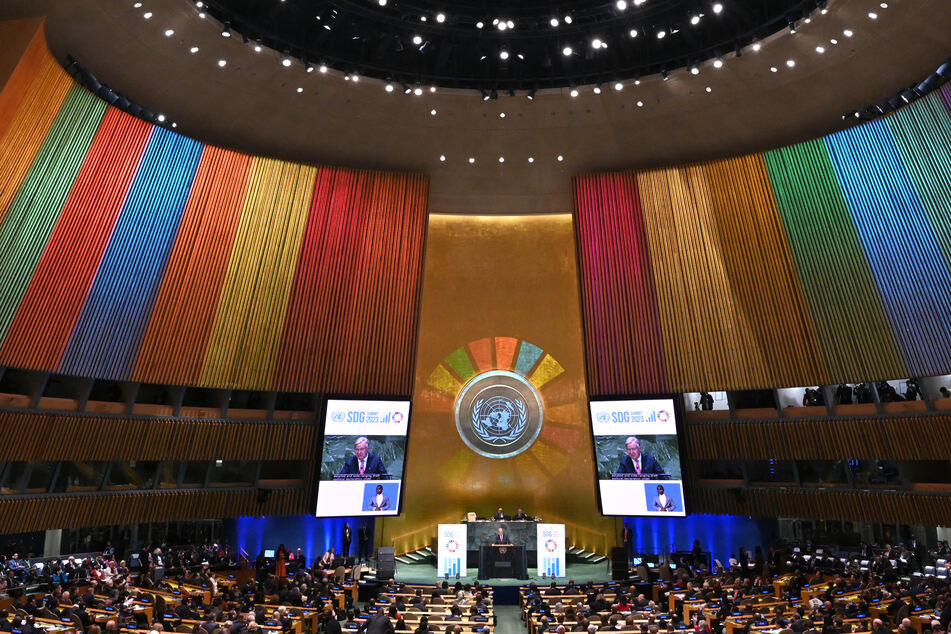Climate crisis has "opened the gates to hell," UN chief tells summit
New York, New York - UN Secretary-General Antonio Guterres on Wednesday told world leaders the climate crisis had "opened the gates to hell" during a summit where leading polluters China and the United States were conspicuously absent.

The talks were partly overshadowed by an announcement from Britain - also not present - that it was rolling back policies that would help it achieve its net-zero goal.
Despite increasing extreme weather events and record-shattering global temperatures, greenhouse gas emissions continue to rise, and fossil fuels remain subsidized to the tune of $7 trillion annually.
Guterres had billed the "Climate Ambition Summit" as a "no-nonsense" forum, making clear that only leaders who had made concrete plans to achieve net-zero greenhouse emissions would be invited.
In his opening address, he evoked 2023's "horrendous heat" and "historic fires" but stressed: "We can still limit the rise in global temperature to 1.5 degrees," referring to the target seen as needed to avoid long-term climate catastrophe.
"Humanity has opened the gates to hell," Guterres warned.
After receiving more than 100 applications to take part, the UN released a list of 41 speakers which did not include China, the United States, the United Kingdom, Japan, or India. Several major leaders didn't bother making the trip to New York for this year's UN General Assembly, including President Xi Jinping of China and Prime Minister Rishi Sunak from the United Kingdom.
United Nations discusses climate crisis amid growing pressure

Sunak also chose Wednesday to announce he was adopting a more "pragmatic" approach to achieving net-zero carbon emissions by 2050, including pushing back a ban on the sale of cars fully run on fossil fuels and easing energy efficiency targets for rental properties.
The moves come as Sunak's Conservative Party is trailing in the polls behind the Labour opposition amid a cost-of-living crisis.
President Biden, who addressed the General Assembly on Tuesday, sent his climate envoy, John Kerry, to the meeting - although Kerry wasn't permitted to speak in the high-level segment.
Catherine Abreu, executive director of nonprofit Destination Zero, said it was "perhaps a good-news story that we see Biden not being given a speaking slot at the summit" because the United States is aggressively expanding fossil fuel projects even as it makes historic investments in renewables.
Anger is building among climate activists, particularly younger people, who turned out in tens of thousands last weekend for the "March to End Fossil Fuels" in New York.
United Nations members debate approaches to climate crisis

German Chancellor Olaf Scholz touted his country's $2.1 billion commitment to a fund that finances climate action in developing countries, while Brazil said it would reach zero deforestation of the Amazon by 2030 - a major reversal from the policies of former president Jair Bolsonaro.
"The small steps countries offered are welcome, but they're like trying to put out an inferno with a leaking hose," said David Waskow of the World Resources Institute, adding: "Far too many key players didn't touch the accelerator."
The issue of money has long plagued climate action. Advanced economies, responsible for the lion's share of historic emissions, vowed in 2009 to channel $100 billion annually to less developed countries by the year 2020 — a promise that remains unfulfilled.
Meanwhile, a "loss and damage" fund to assist nations most impacted by the effects of climate change has still not been operationalized.
Kenyan President William Ruto called for a universal tax on the fossil fuel trade to plug the fiscal gap, adding: "Neither Africa nor the developing world stands in need for charity or handout... What we need is fairness."
Prime Minister Mia Mottley of Barbados urged the world to take the climate crisis and the financing required to solve it as seriously as the Ukraine conflict.
How quickly to purge the global economy of oil, gas, and coal will be hotly contested at the two-week COP28 talks in Dubai starting in late November, with nearly 200 nations taking part.
Cover photo: TIMOTHY A. CLARY / AFP

